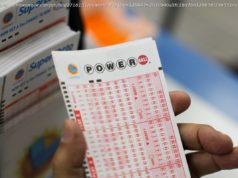Treasury Secretary Steven Mnuchin said Sunday that the United States and China are venturing once more from a conceivable exchange war following two days of talks that created “important adva…
Treasury Secretary Steven Mnuchin said Sunday that the United States and China are venturing once more from a conceivable exchange war following two days of talks that created “important advance.”
In spite of not motivating China to consent to trim its general exchange surplus with America by a particular sum, Mnuchin said the U. S. group got various duties on a system for lessening the shortage after some time, incorporating huge increments in buys of homestead items and a multiplying of buys of U. S. vitality items.
“We are putting the exchange war on hold,” Mnuchin said on “Fox News Sunday.”
As a result of the advance made in arrangements, Mnuchin said the Trump organization has consented to put on hold correctional levies on up to $150 billion in Chinese items. China had guaranteed to strike back in a move that undermined a blow for blow exchange war.
Both Mnuchin and Larry Kudlow, leader of the president’s National Economic Council, said that while China did not consent to meet the $200 billion deficiency decrease objective that President Donald Trump has examined, the Chinese agreed to steps that could eventually mean enormous cuts in the exchange hole between the two countries.
Mnuchin said the activities China has consented to take as a major aspect of the structure the two nations have come to will bring about boosting offers of U. S. cultivate items to China by 35 to 40 percent in this year alone.
He said the assention could bring about multiplying offers of U. S. vitality items, which Mnuchin said could mean an expansion in offers of U. S. vitality items by $50 billion to $60 billion throughout the following three to five years.
Mnuchin said Commerce Secretary Wilbur Ross would soon be venturing out to China to catch up on the dialogs held Thursday and Friday in Washington.
On Saturday, the White House issued a joint explanation from world’s two greatest monetary powers in which the U. S. what’s more, China promised to take measures to “considerably diminish” America’s gigantic exchange deficiency.
In the announcement, Beijing focused on “fundamentally increment” its buys of American merchandise and ventures, saying that the expansion would “meet the developing utilization needs of the Chinese individuals and the requirement for superb monetary advancement.”
The two nations additionally conceded to “important increments” of U. S. agribusiness and vitality sends out and more noteworthy endeavors to build exchange produced products and enterprises. The U. S. said it would send a group to China to work out the points of interest.
The announcement, be that as it may, gave no dollar sums on the amount China may support its buys of American items. Kudlow, showing up Sunday on ABC, said that the $200 billion lessening target “interests the president a ton” and that both U. S. furthermore, Chinese mediators have utilized that figure in the talks “as an unpleasant ballpark assess.”
A year ago, the U. S. had a record deficiency with China in stock exchange of $375 billion, the biggest with any country.
Exchange experts said it was profoundly far-fetched that China could ever consent to a numerical focus for cutting the exchange hole, however they said the discussions likely were more fruitful in de-raising exchange strains.
“It is likely that this understanding, powerless and dubious however it is, will fill in as grounds to at any rate defer the burden of duties,” said Eswar Prasad, a financial analyst and exchange master at Cornell University.
“The Trump organization appears to be anxious to design at least a transitory peace with China to guarantee a smooth run-up to the Kim-Trump summit in June,” Prasad stated, alluding to the June 12 meeting between President Donald Trump and North Korean pioneer Kim Jong Un.
Trump crusaded in 2016 on a vow to get extreme on China and different U. S. exchanging accomplices. He sees the huge U. S. exchange shortage with China as proof that Beijing is occupied with damaging exchanging hones and has outflanked past U. S. organizations.
Last August, U. S. Exchange Representative Robert Lighthizer started an examination concerning Beijing’s solid arm strategies to challenge U. S. innovative strength. These incorporate inside and out cybertheft of U. S. organizations’ competitive advantages and China’s requests that American companies hand over innovation in return for access to the Chinese markets.
A month ago, the organization proposed duties on $50 billion of Chinese imports to challenge the constrained innovation exchanges. Trump later requested Lighthizer to look for up to an extra $100 billion in Chinese items to charge.
China reacted by focusing on $50 billion in U. S. items, including soybeans — a shot at Trump supporters in America’s heartland. The possibility of a heightening exchange war has shaken money related markets and frightened business pioneers.
In a different debate, the Commerce Department a month ago blocked China’s ZTE Corp. from bringing in American segments for a long time, blaming the broadcast communications organization for misdirecting U. S. controllers after it settled charges a year ago of disregarding sanctions against Iran and North Korea.
The boycott added up to a capital punishment for ZTE, which depends vigorously on U. S. parts, and the organization declared that it was ending activities. Seven days prior, Trump tweeted that he was working with Chinese President Xi Jinping to put ZTE “ready to get it done, quick.” Media reports proposed that the U. S. was putting forth to swap a ZTE save for a conclusion to proposed Chinese taxes on U. S. cultivate items.






